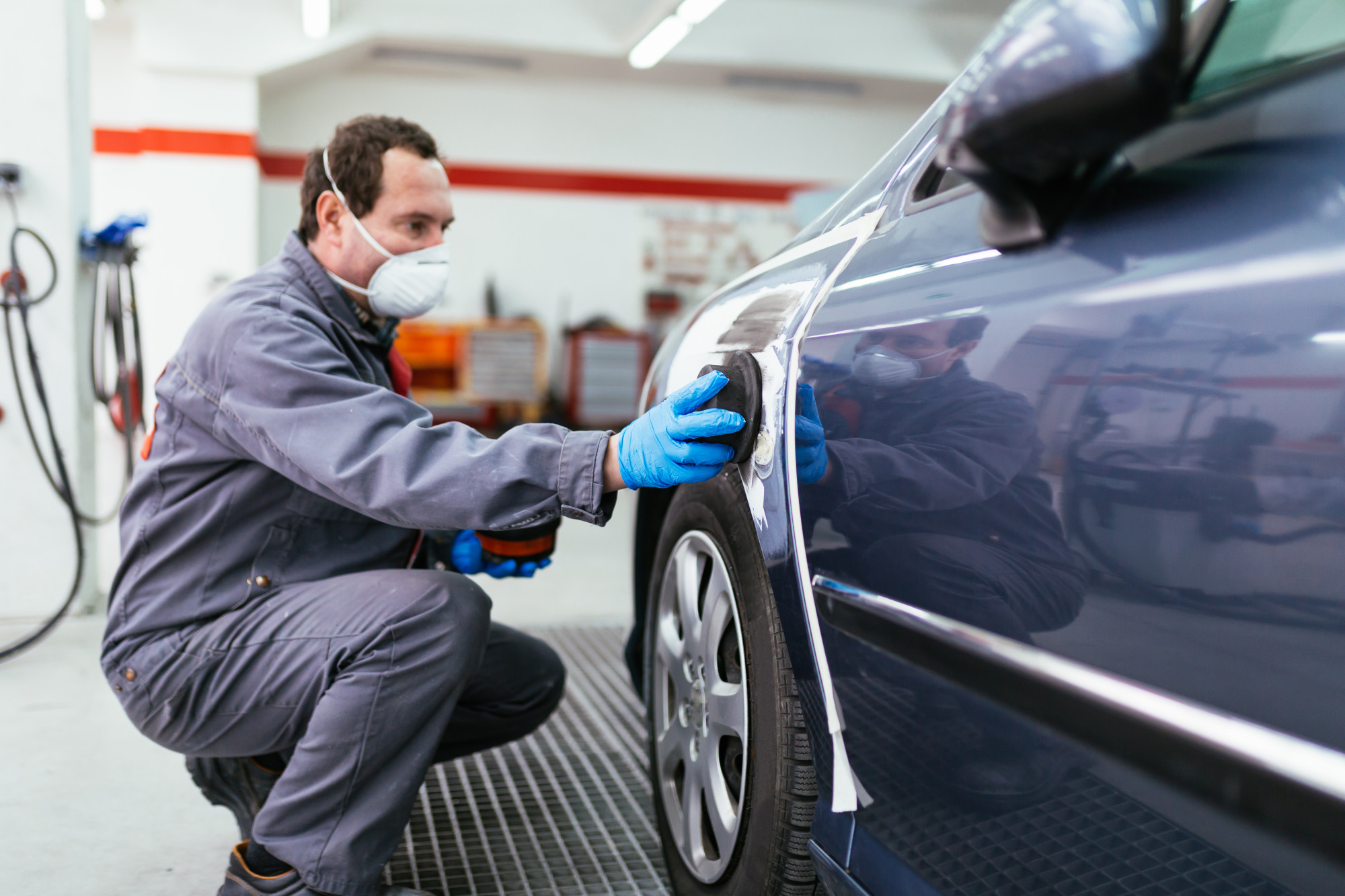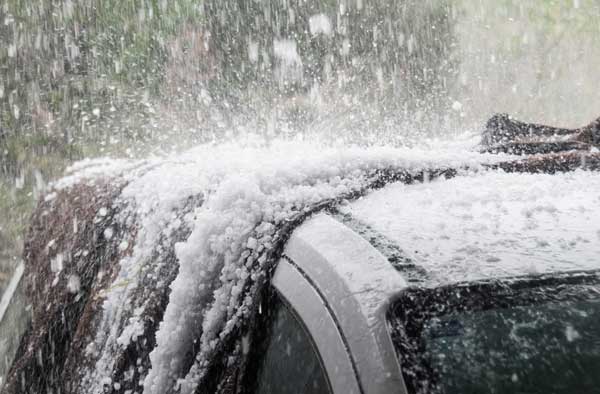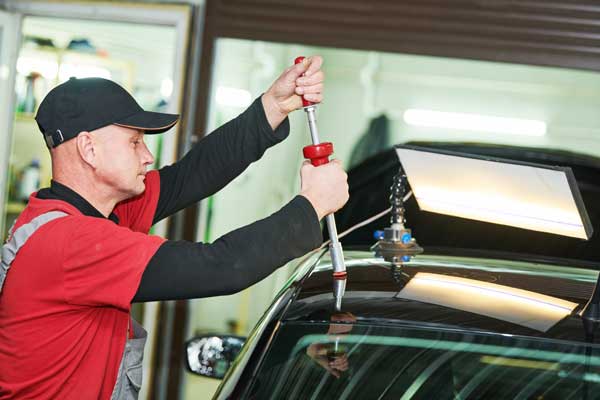According to meteorology, the official first day of spring is March 1st. However, this can vary from year to year.
For many parts of the country, this means the end of snowstorms and cold weather. Unfortunately, a new threat may be moving in — hailstorms. Unfortunately, hail storms can cause a lot of issues, including car hail damage.
There are some parts of the US that are affected more than others, such as the “Hail Belt.” This includes people in the Great Plains and Midwest. The five states that are hit most by hailstorms include Texas, Colorado, Kansas, Minnesota, and Missouri.
While this is true, hail doesn’t discriminate, and when it hits, serious damage can occur. Keep reading to learn about the damage that may occur to your vehicle here.
How Big Must Hail Be to Damage a Car?
To be considered hail, the pieces of ice have to be bigger than or equal to 0.2 inches. For a hailstorm to be considered “severe,” it must be at least one inch, or larger, and falling at a consistent rate.
Large and small hail can cause significant damage to vehicles, and impact the integrity of a vehicle.
Factors That May Impact the Severity of Hail Damage
One of the best ways to determine if hail damage is likely to occur is to consider a few factors. These factors are listed below.
Wind Speed
The speed the wind is blowing at can impact the damage caused by hail to your vehicle. For example, if hail is falling among 5 mph winds, it'll probably not do as much damage as hail falling with 70 mph winds.
When you add the wind speed to the hail size, this can cause some serious cosmetic damage to your vehicle if you have not taken the proper steps to prevent damage.
The Length of the Storm
The duration of a hailstorm will also determine the damage that occurs. A storm that is just passing through will move quickly and not cause as much damage. However, if the storm lasts for 15 minutes or more it's going to cause even more damage.
Types of Car Hail Damage
You've probably seen auto hail damage that was made up of round dents that covered a vehicle’s surface. However, what you may not realize is this isn’t the only type of damage that can occur. Hail comes in many forms. and so can the damage it causes.
It's important for you to know about the types of damage that may occur. Not only will this help you prepare, but it'll also help you find the right repair option.
Some of the most common types of car hail damage that may occur include:
Severe Damage With Cracked Paint
This is considered the most extreme type of damage that can occur. As a result, it’s going to cost you more to repair.
Dents with cracked paint are unable to be repaired using just paintless dent repair. This means you have to seek other means of repair such as body panel replacements and painting.
Severe Damage With Intact Paint
Cases of severe damage can affect the external features of your vehicle. If this happens, more extensive repairs may be necessary.
It is possible that when the hail is so severe that the panels can’t be totally repaired to 100% with PDR then PTP (Push To Paint) may be a viable solution. The panels can be pushed up to such a degree that replacement of the panel isn’t necessary but only painting will need to be done. This PTP process works extremely well on roofs.
Cosmetic Damage With No Paint Issues
The most common type of hail damage (which is cosmetic damage with no paint issues) usually consists of small, round dents on the metal panels of your vehicle. This damage doesn’t impact your paint or finish.
In most cases, cosmetic damage will only impact the surface of your vehicle. This damage is repairable 100% with PDR and no body filler and painting is necessary.
Making a Claim for Damages After a Hailstorm
If hail has caused damage to your vehicle, be sure to take photos of the damage. Let your insurance company know about the damages as soon as possible to make a claim. You'll also need to have your vehicle appraised for the problem to be fixed.
Your insurance company may have a specific service provider they prefer. However, you don’t have to use it. You can typically choose where you want to have your car repaired.
The amount of time it takes for your vehicle to be repaired after hail damage depends on the severity of the damages. Speak with the service technician to find out more.
Don’t Wait to Seek Hail Damage Repairs
If your vehicle's been damaged by hail, don’t wait to seek repairs. Most repairs can be done in 1 - 3 days unless really severe where painting is involved. The longer you wait, the more difficult it may be to get scheduled in for repairs.
To learn more about paintless dent repair, hail damage services, and how to find the best service provider in your area, contact us today. Our team can help ensure the damages present are fixed and that your vehicle is restored to pre-damage condition.



